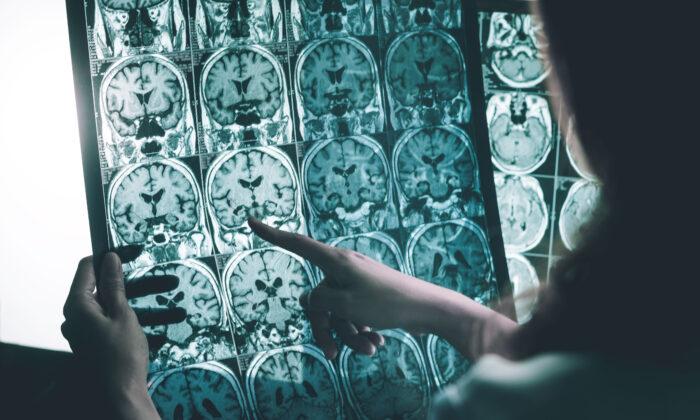First Study to Record Memory Activity From Human Brain Directly
A newly published study in the Proceedings of the National Academy of Sciences (PNAS) has made a major breakthrough in explaining how memory is reactivated during sleep.This is the first investigation that records brain electrical activity directly inside the patients’ brain, unlike previous research recording electroencephalogram (EEG) captured by electrodes attached on the patients’ scalp.
Scientists from Northwestern University, the University of Michigan, and the University of Chicago stated that sleep contributes to memory consolidation.
The authors concluded that there was critical memory processing that took place during sleep, and that sleep is an ideal state for memory consolidation, given the patients had reduced sensory and little executive function.
How the Study Was Done
Five patients voluntarily participated in the study in the University of Chicago Epilepsy Center. Electrode probes were implanted into their brain for the purpose of monitoring treatment results for their seizure disorders.Researchers observed a learning process, during which the patient learned the location of a set of common objects on a laptop computer screen. Each object was present simultaneously with a concurrent sound closely associated with the object.
After learning, the patients were required to sleep in a hospital room, where 10–20 sounds they learned in the daytime were played quietly during their sleep, and their brain electrophysiological responses were recorded.
Scientific Review Found Slow-Wave Sleep Is Essential for Memory Consolidation
A scientific review published in April 2022 in the Journal of Epilepsy & Behavior summarized that sleep and long-term forgetting in Alzheimer’s disease were tightly interconnected, and sleep disturbances were highly related with cognitive decline and memory loss.The reason for the memory problem is partly from circadian disruption, and sleep disturbances impair the memory consolidation process and result in cognitive decline.
It is a bit of a “chicken or egg” relationship. Sleep disorders contribute to poor memory and consequently poor cognition, but poor cognition also contributes to poor sleep.
The authors reviewed publications related to sleep and cognitive disorders from the past 10 years, and they found that there was a negative correlation between them.
The review highlighted that slow-wave sleep is essential for memory consolidation.
Previous research concentrated on the interaction of rapid-eye-movement (REM) sleep and memory maintenance, but more recent work focuses on the role of slow-wave sleep in the memory consolidation processes.
Memory consolidation is based on the reactivation of recently encoded information, which occurs during slow-wave sleep, and integrates the information into long-term memory.
Slow-Wave Sleep and Sleep Stages
Sleep is composed of five stages: awake, N1, N2, N3, and REM. Stages N1 to N3 are progressively deeper sleep stages, and they are considered non-rapid eye movement (NREM) sleep. Approximately 75 percent of sleep is spent in the NREM stages, with the majority spent in the N2 stage.N2 (Stage 2) is deeper sleep compared to the N1 stage of NREM, with the drop of heart rate and body temperature. In the EEG recording, sleep spindles and/or K complexes are present. Sleep spindles play an important role in memory consolidation, while K-complexes function in maintaining sleep and memory consolidation. Stage 2 sleep lasts about 45 percent of total sleep.
N3 (Stage 3) is the deepest NREM Sleep, also known as slow-wave sleep. It lasts about 25 percent of total sleep. This is considered the deepest stage of sleep and is characterized by brain waves with lowest frequency and highest amplitude, known as delta waves. This is the hardest stage during which to wake someone.
Slow-wave sleep plays an important role in cerebral restoration and the recovery in humans involved in the maintenance of sleep.
The consolidation of memory thus takes place by the repeated reactivation of the new memories during sleep periods, and the new memories are gradually strengthened and adapted to preexisting long term memories.

How to Consolidate Memory During Your Sleep
The body cycles through REM and NREM sleep stages approximately four to six times each night, averaging 90 minutes for each cycle. Sleep quality and time spent in each sleep stage may be altered by aging, circadian rhythm, depression, brain trauma, medications, etc.- Review important information before you sleep
Though you try to retain memories moment by moment during the day, most of the information will be forgotten afterwards.
- Acquire enough deep sleep to consolidate your memory
Short-term memory is originally formed in the hippocampus, and if not stimulated, the memory will go away not long after. When it is properly strengthened, the memory will transfer to long-term memory and integrate to the existing neural network.
An implication of the data presented above is that sleep, and slow-wave sleep in particular, appears to be associated with an increase in episodic declarative memory consolidation.
To achieve the better results of memory consolidation, you have to obtain the N2 stage of sleep, which occupies 45 percent of your total sleep hours. For an average 90-minute sleep cycle for four to six times of sleep stages, there are approximately 160- to 240-minute deeper sleep hours that benefit your memory consolidation.
Theoretically, 25 percent of the slow-wave sleep belongs to the non-arousal hours. For an adult, there is an average 90-minute sleep cycle for four to six sleep cycles, therefore, approximately 90- to 120-minute sleep cannot be interrupted.
How to get High Quality Sleep
During slow-wave sleep, the person is in a deep sleep state and cannot be roused, which usually indicates a high-quality sleep period.- Be consistent and stick to sleep routines
- Meditation-based exercises and relaxing your nerves
- Calm your emotions before going to bed
- Avoid large meals, caffeine, and alcohol before bedtime
- Make sure your bedroom is quiet, dark, relaxing, and at a comfortable temperature
- Non-interrupted sleep
- Treat your difficult body conditions
Consult your doctor on treating difficult body conditions; the advice may help improve the situation, and in turn help you calm down your nerves and improve your sleep quality.





